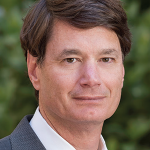What is the radiation-sparing capacity and xerostomia-reducing potential of the modified submandibular gland transfer for head and neck cancer patients who receive radiation therapy?
No Correlation Between IAC Diverticula Presence/Size and Degree of Hearing Loss
A look at the relationship between hearing loss and internal auditory canal (IAC) diverticula.
Neurologic Comorbidities, Failure to Thrive Negatively Affect Pediatric Decannulation
Younger age at tracheostomy and longer cannulation period were associated with higher late postoperative complication rates.

Surgeons Describe How They Use Fluorescence to Guide Work on Head and Neck Tumors
The use of fluorescent light to see through normal tissues down to head and neck tumors is showing promise as a way of guiding surgeons and improving margins and outcomes
SEMA4D Exacerbates Eosinophilic CRS in Humans, Mice
Eosinophil-derived SEMA4D aggravates ECRS, and serum SEMA4D levels reflect disease severity.
Female Otolaryngologists Use Goals, Values to Guide Decisions Related to Home and Work
Conflicting demands between home and professional life are one of the barriers to recruiting, promoting, and retaining women in academic otolaryngology.

Kaiser Permanente CEO Richard Isaacs Shares His Thoughts on Physician-Led Care
Richard Isaacs, MD, CEO and executive director of The Permanente Medical Group, discusses his work, including how his background as an otolaryngologist has prepared him for the role.

Experts Share Otolaryngology Best Practices
Experts share practical tips on topical agents for scarring, asymmetric sensorineural hearing loss and imaging, topical epinephrine and endoscopic sinus surgery, and peri-operative steroids in parotid surgery.

When Is Surgical Intervention Indicated for Vocal Fold Leukoplakia?
Management remains controversial because there is no universally accepted consensus on the threshold for surgical intervention, appropriate treatment strategy, frequency of surveillance, and ablative versus excisional management

Are Cochlear Implants a Viable Option Following Temporal Bone Fracture?
Temporal bone fractures occur in up to 20% of patients who sustain a skull fracture.
- « Previous Page
- 1
- …
- 108
- 109
- 110
- 111
- 112
- …
- 341
- Next Page »